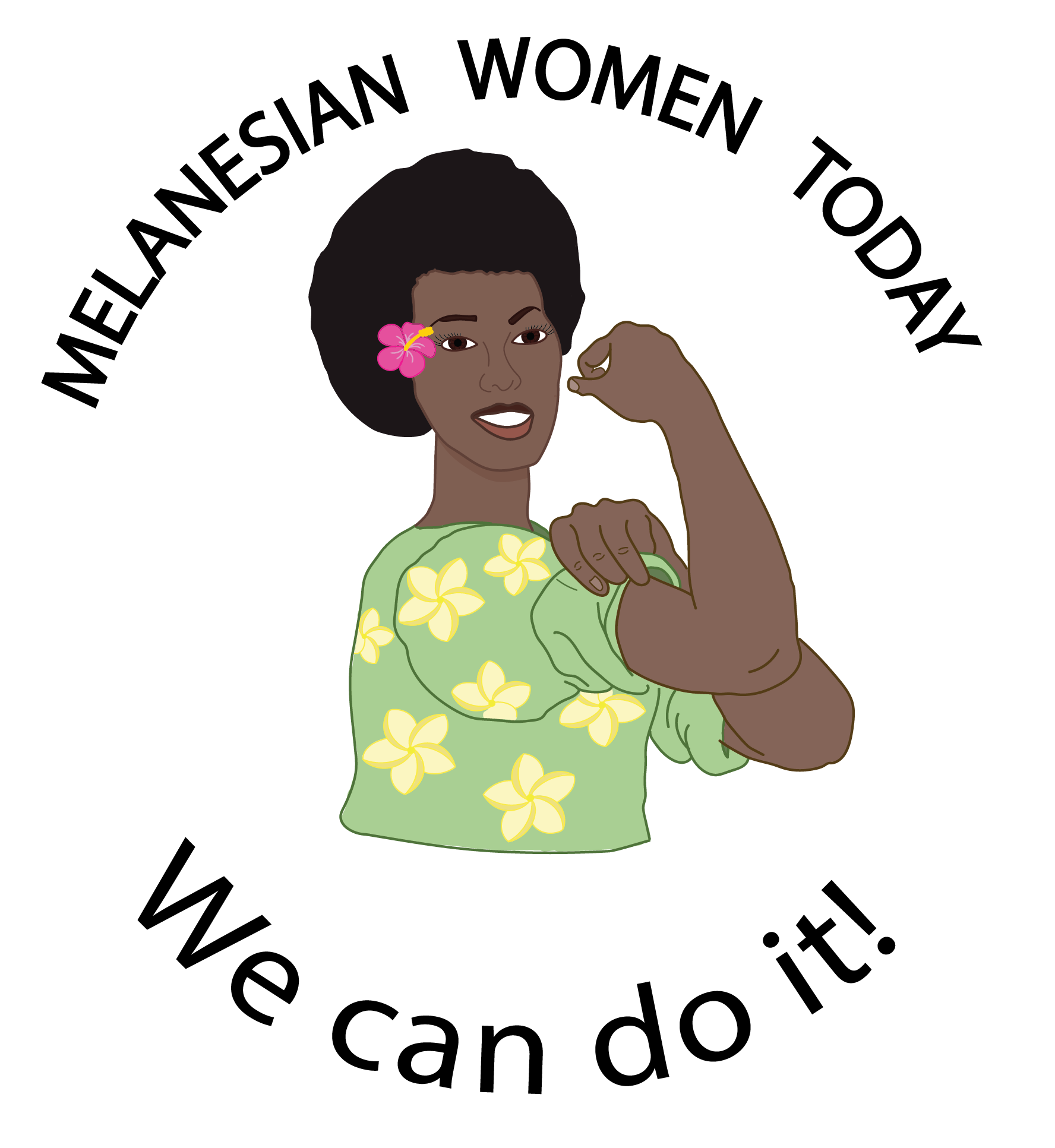Welcome to Melanesian Women Today's Quarterly Newsletter - 2023
Updates: Featured Stories | International Women's Day | International Language Day |Stories from the Region | Our Projects
Welcome to the MWT's first newsletter of 2023! If you are new to the organization’s work, we are a nonprofit dedicated to empower the women and communities of Melanesia by improving their well-being and quality of life, promoting leadership among the women and girls in their communities through education, entrepreneurship, health, and increasing awareness of climate issues. We partner with like minded causes and organizations all with the common goal of uplifting the vibrant communities of Melanesia. We are so excited to share the conversations we have been facilitating on social justice and climate, introduce new board members and announce our ongoing plans. Thank you for being a supporter.
Learn more about MWT on our website!
Expanding our leadership: Introducing new board members! Team
From Vanuatu:
Joanna Bule
Country Coordinator and Communications Personnel
With over ten years of experience working in libraries, Joanna is knowledgeable and capable of developing libraries for under-resourced communities. She is also passionate about empowering women and youth and has experience in WASH (Water, Sanitation and Hygiene).
Eddy Statugia
As a Counselor and Tours Consultant with over 20 years of experience, Eddy brings valuable skills as a Freelance Market Consultant to help people lead healthy lives in all aspects. His expertise in developing awareness courses for rural areas has resulted in the creation of tourist attractions and their successful promotion internationally.
Eddy's ability to help individuals build their skills, find their identity, and live positively makes him a valuable asset to our organization, bringing a unique perspective to our mission.
Torika Kalman
A Political Science graduate from the University of Waikato, Torika has a passion for humanitarian service projects and has demonstrated exceptional leadership skills throughout her career. As a Program Coordinator at V-Lab, she continues to make meaningful contributions to the community, leveraging her expertise and experience to support our mission.
From The United States:
Liz Finin
Liz is a lifelong dedicated educator who has taught in a variety of settings, from New York to Washington State, including as a Peace Corps volunteer in Mauritania, West Africa. As a middle school teacher on Bainbridge Island, she has been facilitating service learning projects for 15 years, inspiring students to learn about the world and the issues that matter to them. Liz takes great joy in seeing the spark in her students when they realize the impact they can have and is a valuable asset to our organization.
Read our featured community stories:
These stories showcase how students have engaged with MWT's mission and advocacy through journalism and educational programs.
Read about the 2 year long service project to deliver books to a elementary school's library in Kelkei- and the importance of literacy.
The Ripple Effect of Community Partnership: Delivering Hundreds of Books to a Remote School in Papua New Guinea
By Saiya McElderry
Celebrating International Women's Month!
Empowering Pacific Women in Science: A Story of Passion and Perseverance
On March 8th, International Women's Day is celebrated worldwide to recognize the social, economic, cultural, and political achievements of women and girls. This year's theme of "DigitALL: Innovation and technology for gender equality" highlights the critical role of technology in empowering women and promoting gender equality. In the Pacific region, women and girls are affected by climate change and the environment, and many are using their scientific and technological knowledge to tackle these challenges. Mary Sine, a student in Vanuatu, is an excellent example of this. Despite financial constraints and the demands of balancing work and education, Mary is committed to using technology to advance her field and protect the environment. Mary's pursuit of environmental science in Vanuatu reflects the 2023 International Women's Day theme of "DigitALL: Innovation and technology for gender equality," underscoring the significance of empowering women in STEM and providing the necessary resources for success. Mary's example inspires us to support women's pursuit of innovation, technology, and gender equality on International Women's Day 2023.
Spotlight:International Mother Language Day, Feb 21st!
Hear from four Melanesian women on the transformative power of mother languages:
"My mother tongue identifies me with my people, clan, tribe, and nation, filling me with pride and a sense of identity. It allows me to connect with my community in countless ways, shaping my worldview and how I interact with the world. By learning and understanding my mother tongue, I am empowered to contribute to the global pursuit of knowledge and offer solutions to various challenges." Ruth Maetala - Solomon Island
"If we lose our language, we will lose our culture because so much of our customs are woven into our language. I want to encourage Indigenous Pacific Islanders to research and record their cultures and learn their languages. I am learning to speak Fijian fluently as an adult and it has been costly to pay tutors to help me, but it is a worthwhile investment. I hope Islanders will be proud of who they are and the culture they come from." Talei Caucau - Fiji
"Mother language is very important in shaping our identity, the survival of our ancestral worldview that shapes our cultural roots. For us in West Papua, who are living under colonialism, the first thing that the ruler did was to ban us from using our own mother language. Instead, we have to use the Indonesian language, and use it in the formal sector, while our own language is starting to become extinct. The extinction of the local languages will have a huge impact on our society because we have names for everything around us, but we cannot find synonyms in the Indonesian language. This will cause the local language users to decrease over the years, and it causes us (local Papuans) to start losing values, identity, and also culture that really shapes our worldviews. This will make our uniqueness disappear and start using other people's (Indonesian) culture." Esther Haluk -West Papua
"In my story, I am a mixed-race child, part Kanak from New Caledonia and part Algerian and French. I was raised in my mother's family, who only spoke French. However, my father's family speaks a Kanak language called "Ajië-Aro". Ajië-Aro is the local language of one part of the northern territory in New Caledonia called Houailou. Although my parents never taught me the local language, I know some words and expressions, but I could never understand a full conversation. Not knowing a local language was not a disadvantage in the capital city, Nouméa, where French colonization has tended to erase any Kanak culture and identity. Local languages were never used in the city or in administrative settings and only recently have been introduced in high schools and television programs. People who spoke local languages were seen as uneducated and "wild". During the violent and anti-Kanak period of 'indigénat' from 1887 to 1946, where Kanak people were forced to labor, those who spoke their mother language were physically punished. Even today, local languages are still stigmatized in our Caledonian society, and French is still considered the only "valid" language to speak. As I grew up, it became clear to me that my incapacity to speak Ajië-Aro was definitely a disadvantage. Today, I see the world through a French paradigm because all my words are defined by the French language. However, my education is still Oceanian. Although there will always be a duality in my conception of the world, I try to use it as a strength and not a weakness. I am proud of my origins, and I think it shows up in my illustrations. I am deeply convinced that teaching local languages at school and recognizing them as part of our Caledonian culture would improve our society. Teaching local languages to mixed-race children like me would also be beneficial for them to grow up within two cultural identities and fully be part of two worlds. The Kanak world is complex, and it is undeniable that Kanak languages are the doorkeepers to this world. French will never be able to faithfully transcribe the Kanak reality; it only gives us a glimpse of the beauty of my people." MaryLou Mahe - New Caledonia
Introducing Stories from the Region
COMING TO THE MAT podcast
New engaging episodes
Episode 26 - Pacific Island Students Fight for Climate Justice with Solomon Yeo
As a climate advocate and one of the founding members of Pacific Island Students Fighting Climate Change, Solomon plays a crucial role in leading the charge towards a better future for our planet. Currently, the organization is seeking an advisory opinion on climate change from the International Court of Justice. Solomon provides updates on the progress of the campaign and highlights the importance of including human rights with climate action.
Local news: Two Cyclones Hit Vanuatu in One Week. What was the Impact?
Vanuatu, a small Pacific island nation, has been hit hard by two category 4 tropical cyclones named Judy and Kevin, which made landfall on March 1st and 3rd, respectively. Followed by a 6.5 magnitude earthquake, compounding the devastation. As a result of the severe damage, the government declared a State of Emergency on March 2nd. The destruction of homes and infrastructure has left the Ni-Vanuatu residents feeling vulnerable and uncertain about the future, highlighting the psychological toll natural disasters can have on individuals and communities. Climate change is a significant factor in the increased frequency and intensity of cyclones in Vanuatu. The government has responded to this crisis by promoting climate awareness and implementing measures to mitigate the effects of climate change. However, more needs to be done to address the root causes of climate change and its impact on vulnerable communities like Vanuatu - Full Story
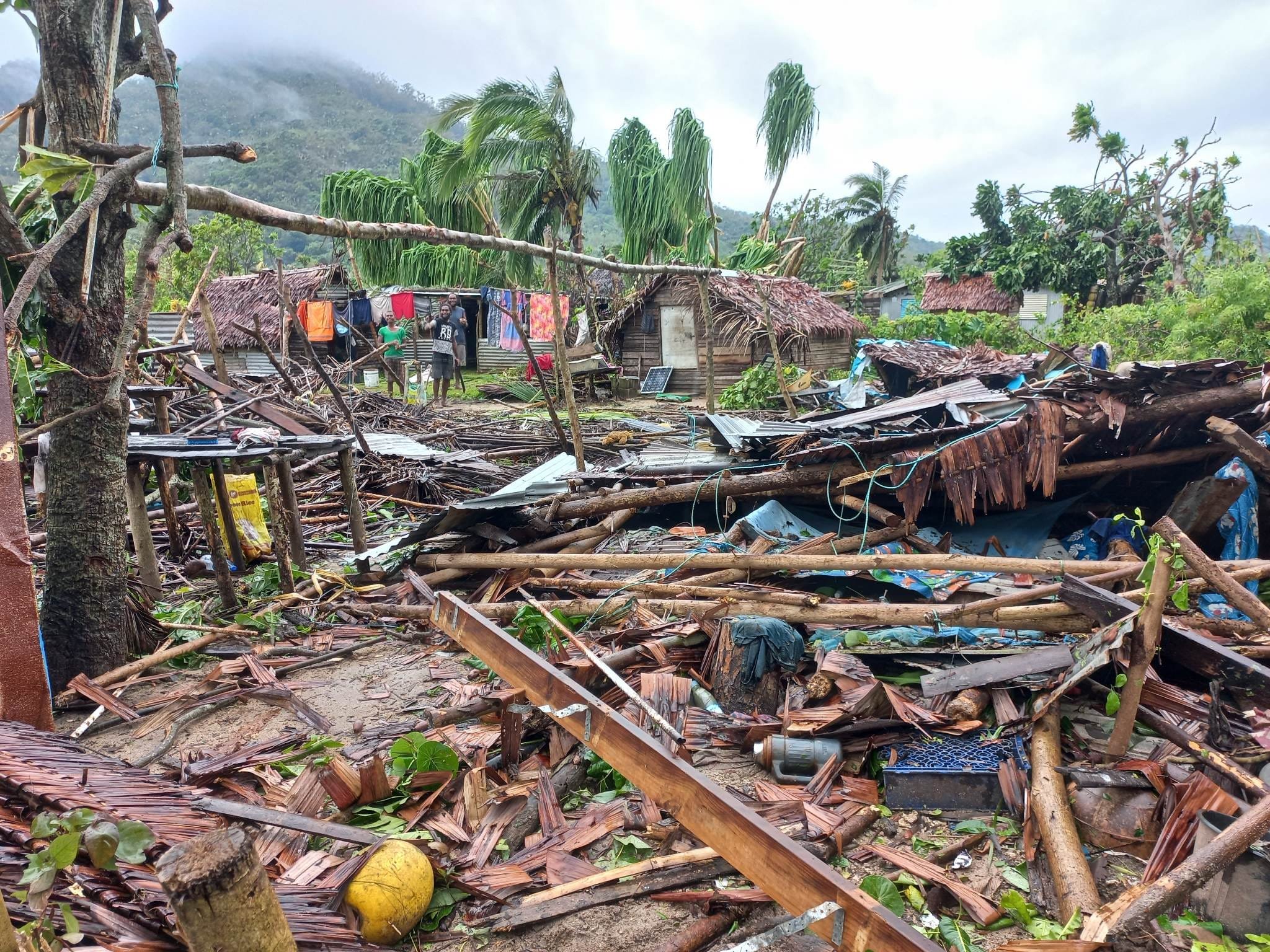
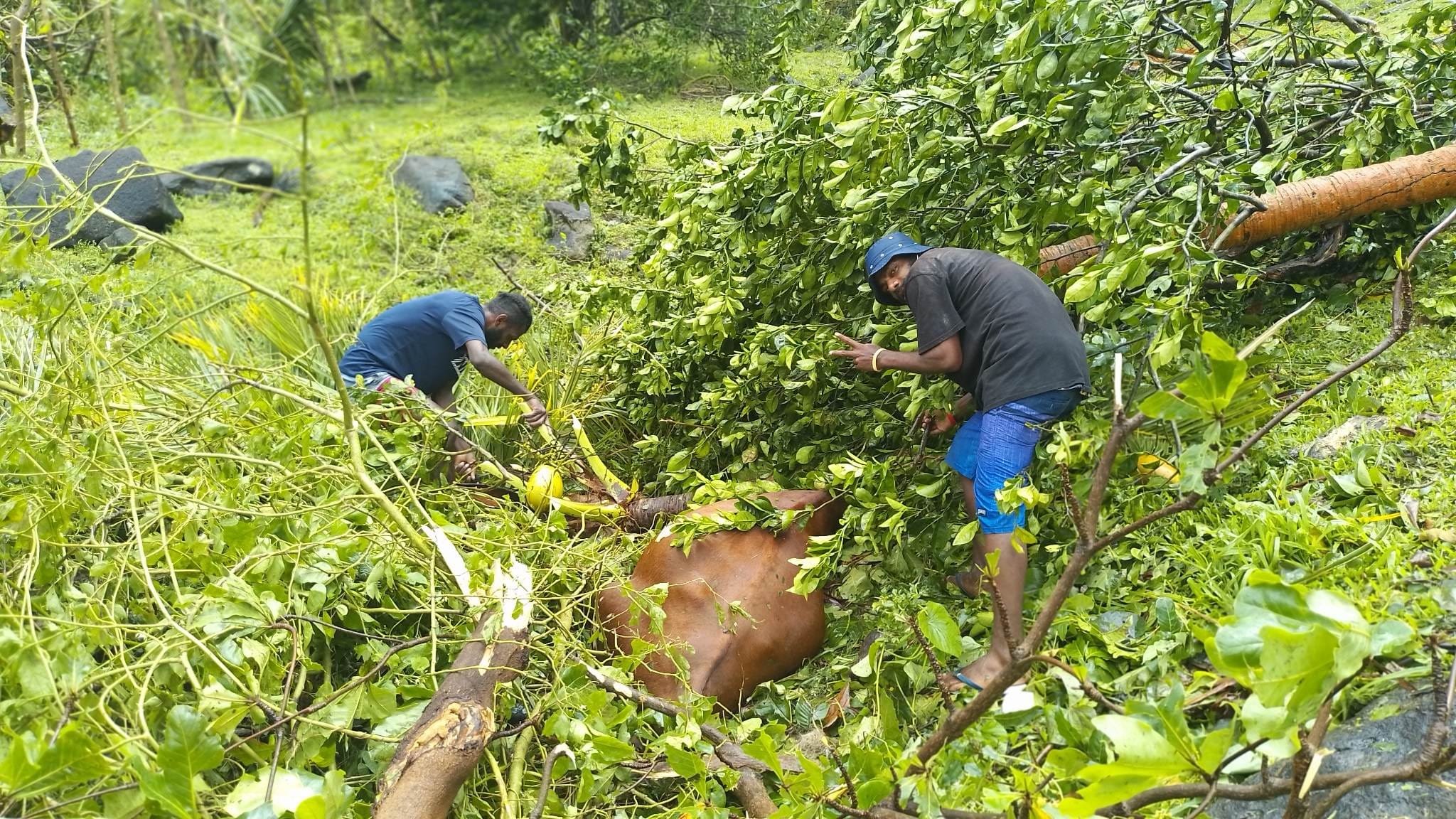
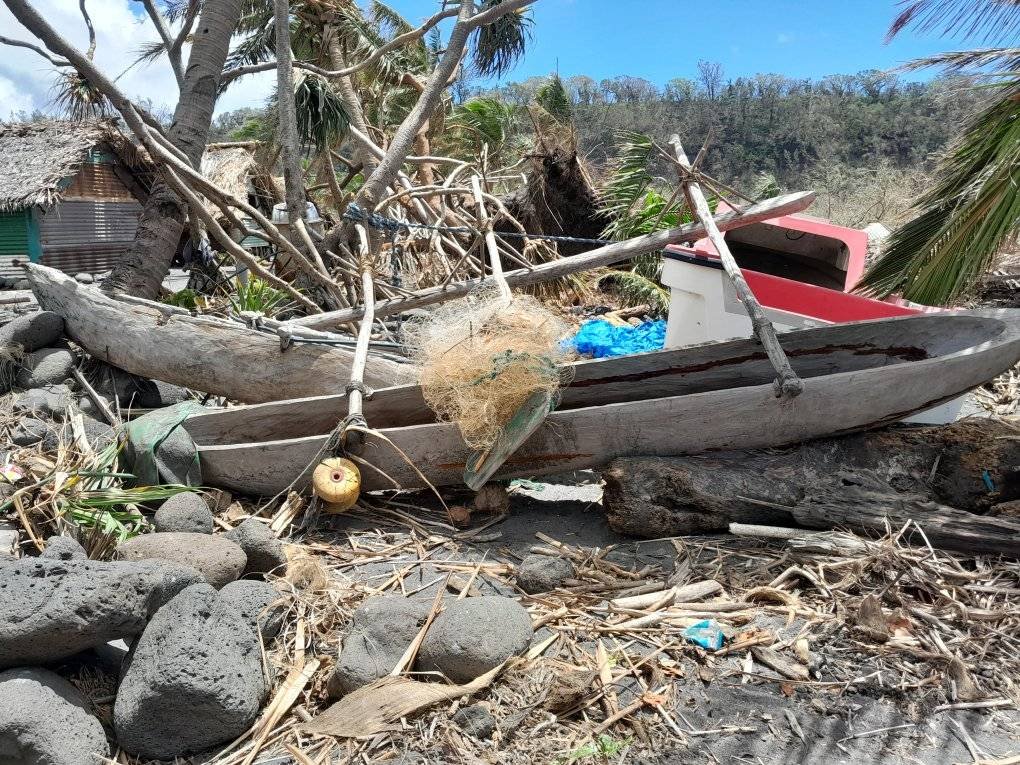

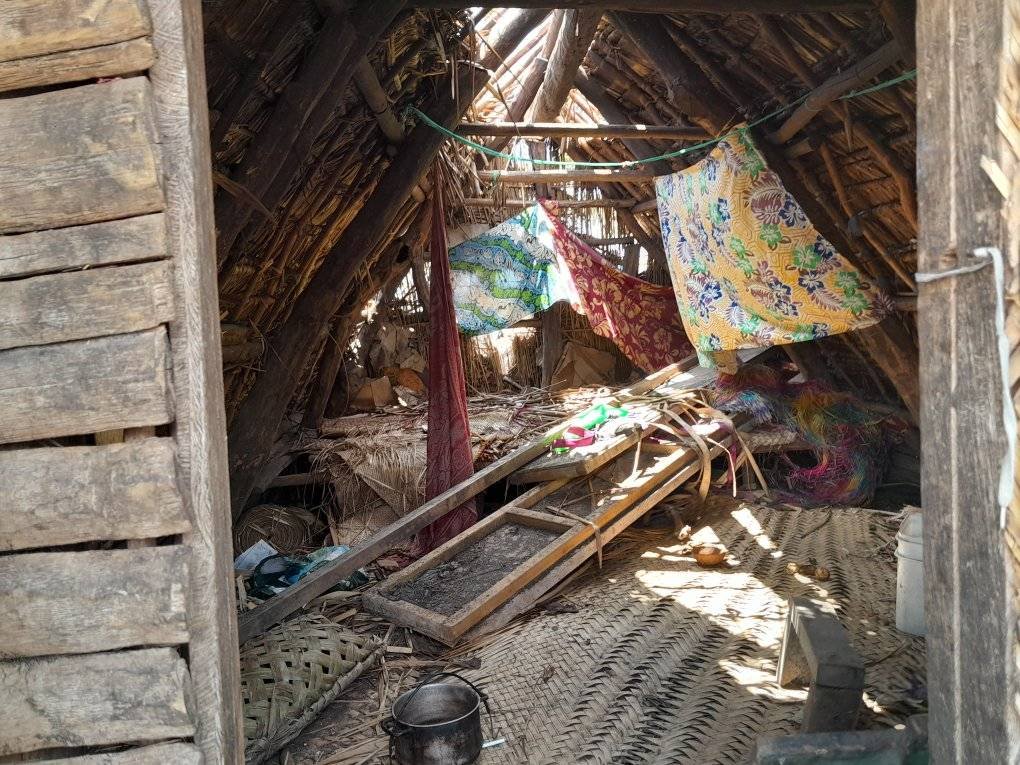
The tropical cyclone Kevin caused distractions on the island of Tanna in the Tafea province in the southern part of Vanuatu. TC Kevin made landfall on Tanna Island on March 4th, 2023. These pictures were taken by VBTC (Vanuatu Broadcasting Television Corporation).
Project updates!
Project updates!
Girls Scholarships in the Solomon Islands
Odyssey students were able to raise $1915 to support educational scholarships for girls in the Solomon Islands. This project began 4 years ago to address this appalling fact: Only 7% of girls in the Solomon Islands graduate from high school, making it the lowest rate in the world. We are working to change this by continually expanding our scholarship program to reach more people, and we are proud to be able to support the continued education of 10 young women this year! it is, the way you tell your story online can make all the difference.
Odyssey 7th and 8th graders raised $1915 for scholarships in the Solomon Islands, where only 7% of girls graduate high school - the world's lowest rate.
The Kelkei Book Project
As a result of the two year-long service project to provide books to a rural school in PNG, we hear about the books impact from the school:
"I am pleased to report that we have witnessed a significant increase in the number of students attending the school, and there is growing interest from more. The recent book donation has served as a strong motivation for parents to prioritize their children's education, as they have seen the positive impact of reading books on their academic progress. We are grateful for this generous donation, and it has undoubtedly made a tremendous difference in the lives of our students." - Pualine Woti, Founder and Secretary of the Kelkei School
